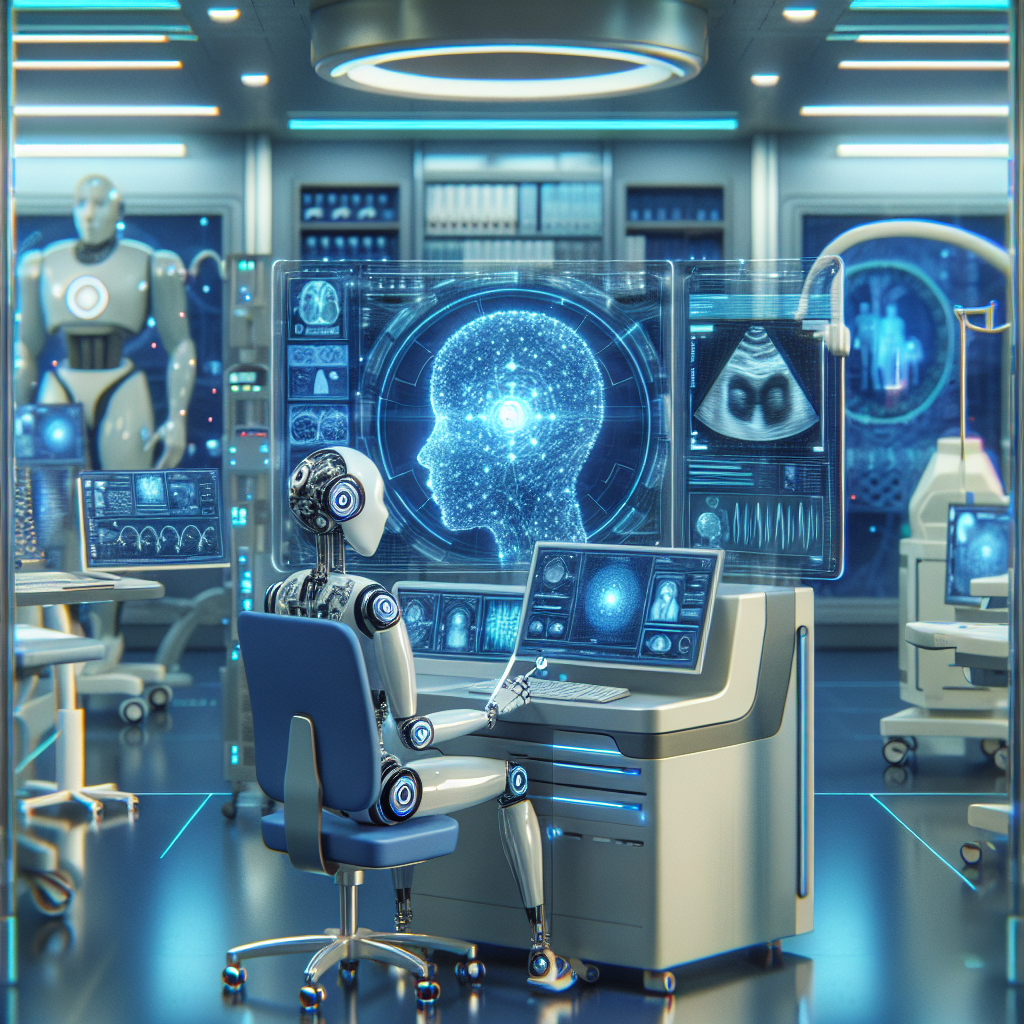The Future of AI Integration in Health Information Technology
Artificial intelligence (AI) has been making significant strides in various industries, including healthcare. The integration of AI in health information technology (IT) is transforming the way healthcare providers deliver services, improve patient outcomes, and streamline operations. As technology continues to advance, the future of AI integration in health IT holds immense potential for revolutionizing the healthcare industry.
AI in Health Information Technology
AI technology encompasses machine learning, natural language processing, and predictive analytics, among other capabilities. In healthcare, AI is being used to analyze vast amounts of data, such as patient records, images, and genetic information, to identify patterns and make predictions. This enables healthcare providers to deliver more personalized and effective care to patients.
One major area where AI is being integrated into health IT is in diagnostics. AI algorithms can analyze medical images, such as X-rays and MRI scans, to detect abnormalities and assist radiologists in making accurate diagnoses. This not only speeds up the diagnostic process but also reduces the risk of human error.
AI is also being used to predict patient outcomes and identify individuals at high risk of developing certain conditions. By analyzing patient data and identifying patterns, AI algorithms can help healthcare providers tailor treatment plans to individual patients, ultimately improving outcomes and reducing healthcare costs.
Another key area of AI integration in health IT is in administrative tasks. AI-powered chatbots and virtual assistants can handle patient inquiries, schedule appointments, and provide information on medications and treatment options. This not only improves patient satisfaction but also frees up healthcare providers to focus on more critical tasks.
The Future of AI Integration in Health IT
The future of AI integration in health IT looks promising, with many exciting developments on the horizon. Here are some key trends that are shaping the future of AI in healthcare:
1. Personalized Medicine: AI algorithms are increasingly being used to analyze genetic data and identify personalized treatment options for patients. By taking into account an individual’s genetic makeup, medical history, and lifestyle factors, healthcare providers can deliver more targeted and effective treatments.
2. Remote Monitoring: AI-powered devices and wearables are enabling remote monitoring of patients’ vital signs and health metrics. This allows healthcare providers to track patients’ health in real-time, intervene early when issues arise, and reduce the need for in-person visits.
3. Predictive Analytics: AI algorithms are becoming more sophisticated at predicting patient outcomes and identifying individuals at risk of developing certain conditions. By leveraging predictive analytics, healthcare providers can intervene early to prevent complications and improve patient outcomes.
4. Drug Discovery: AI is revolutionizing the drug discovery process by analyzing vast amounts of data to identify potential drug candidates and predict their efficacy. This can significantly accelerate the development of new treatments and therapies for various diseases.
5. Enhanced Imaging: AI algorithms are enhancing medical imaging technologies by improving image quality, reducing noise, and enabling more accurate diagnoses. This is particularly useful in fields such as radiology and pathology, where precise imaging is crucial for diagnosis and treatment planning.
FAQs
Q: Will AI replace human healthcare providers?
A: While AI technology is making significant advancements in healthcare, it is unlikely to replace human healthcare providers entirely. AI can assist healthcare providers in making more informed decisions and improving patient outcomes, but human judgment and empathy are still essential in delivering quality care.
Q: Is AI technology secure and compliant with patient privacy laws?
A: Healthcare providers must ensure that AI technology complies with patient privacy laws, such as the Health Insurance Portability and Accountability Act (HIPAA). AI algorithms should be designed with data security and privacy in mind to protect patient information and maintain compliance with regulations.
Q: How can healthcare providers prepare for the integration of AI in health IT?
A: Healthcare providers can prepare for the integration of AI in health IT by investing in training and education for staff, implementing robust data governance policies, and collaborating with technology vendors to ensure seamless integration of AI solutions. It is essential to involve stakeholders at all levels of the organization in the planning and implementation of AI initiatives.
Q: What are the potential risks of AI integration in health IT?
A: Some potential risks of AI integration in health IT include data privacy breaches, algorithm bias, and reliance on technology over human judgment. Healthcare providers must carefully evaluate AI solutions, ensure transparency in decision-making processes, and monitor algorithms for bias and inaccuracies to mitigate these risks.
In conclusion, the future of AI integration in health information technology is bright, with the potential to revolutionize the healthcare industry and improve patient outcomes. By leveraging AI technology in diagnostics, personalized medicine, remote monitoring, and drug discovery, healthcare providers can deliver more efficient and effective care to patients. However, it is crucial for healthcare providers to address potential risks and challenges associated with AI integration and ensure compliance with data privacy laws to maximize the benefits of this transformative technology.

